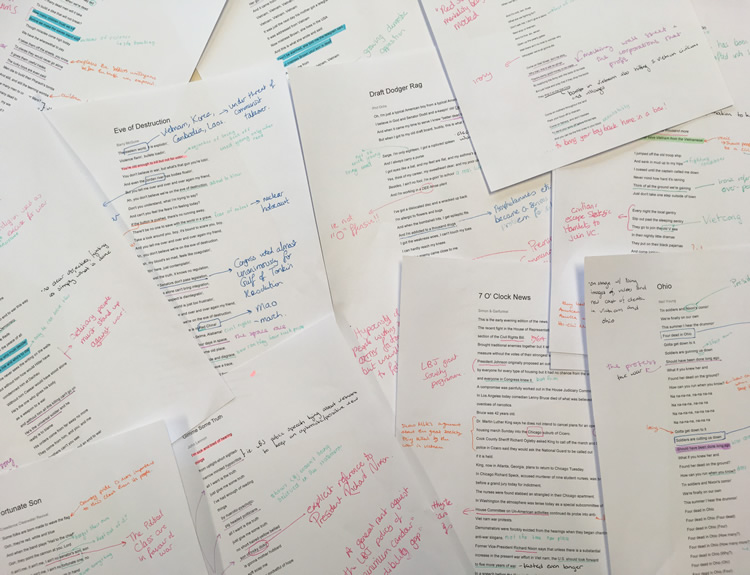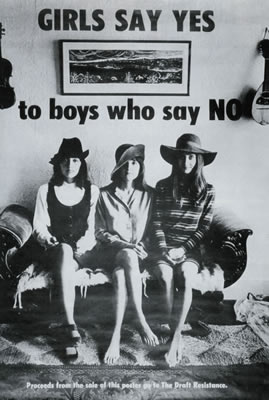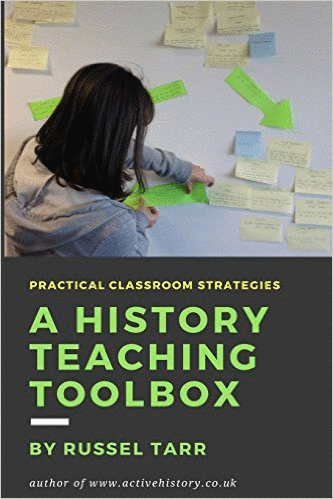World History teaching resources for the high school classroom: lesson plans, worksheets, quizzes and simulation games for KS3, IGCSE, IB and A-Level teachers.
 In 1962, President Kennedy sent 1600 military advisors into Vietnam. They began hoarding peasants into fortified 'Strategic Hamlets' away from communist influence.
In 1962, President Kennedy sent 1600 military advisors into Vietnam. They began hoarding peasants into fortified 'Strategic Hamlets' away from communist influence.
This drew the USA into a war which was not only the longest and bloodiest it ever fought, but also one which ended in America's first ever military defeat.
The Vietnam War saw the Cold War conflict move from Europe (Eastern Europe, Berlin) and America (Cuban Missile Crisis) into Asia (which also experienced war in Korea).
It was a conflict which not only pitted the superpowers against each other, but also involved horrific civilian casualties within Vietnam and mass demonstrations against the American government until US troops were finally pulled out of the country in 1975.
A. Why did the USA get involved in Vietnam?
In this first part of the unit, students consider the general and specific reasons for US involvement in Vietnam. Over the course of three activities they develop an official speech from President Kennedy on the subject, compare this to what he really said, and then make final changes as appropriate.
JFK Speech writing Task Part [1]: Why was the USA so keen to prevent communism spreading?
"Imagine you are a speechwriter for the President Kennedy of the United States. Using your knowledge of the Cold War so far, draft a speech (starting "Fellow citizens...") justifying Kennedy's actions."
JFK Speech writing Task Part [2]: Why was the USA so concerned that communism could spread into Vietnam in particular? | Teacher Answer sheet
This worksheet gets students to anticipate how the USA managed the difficult situation in Vietnam - the capitalist, Catholic regime of Diem (and his wife, nicknamed 'dragon lady') in the South was deeply unpopular with the largely Buddhist population. Some Buddhists even burnt themselves alive in protest (Diem dismissed these 'barbecues' as pathetic publicity stunts).
JFK Speech writing Task Part [3]: Kennedy's own words on the subject
In this final part of the
speechwriting exercise, students listen to a couple of speeches made by Kennedy on the subject of Vietnam, and then complete their press statements.
Video Clip 1 | Video Clip 2
JFK and the Diem Coup: To what extent was Kennedy responsible? | Accompanying slideshow
In this activity students consider a range of primary source documents to determine how far Kennedy was responsible for coup against President Diem.
Sourcework Questions: Why did the US get involved in Vietnam?
Several sourcework questions, culminating in:
Here are three reasons why the US may have got involved in Vietnam: which do you agree with most, and why?
i. Because they wanted to protect the world from communist dictatorship
ii. Because they were paranoid about the communist threat
iii. Because they were aggressively trying to dominate the civilised world
B. Online Simulation: The Vietnam War Policies of Presidents Johnson and Nixon
This comprehensive online simulation, which comes complete with structured tasks, multimedia clips, and essay-planning exercises, provides a self-contained method of studying the rest of the Vietnam War. It can be completed over several lessons, with the other activities that follow on this page being included at appropriate points.
C. How and why did President Johnson escalate US involvement in the Vietnam War?
 How and why did President Johnson escalate US involvement in the Vietnam War? | Teacher mutimedia presentation
How and why did President Johnson escalate US involvement in the Vietnam War? | Teacher mutimedia presentation
By 1963, Kennedy felt that the US military advisors had done all that they could.
He decided to announce a phased withdrawal from Vietnam to be completed by 1965.
However, three events transformed the situation and meant that instead US involvement was instead rapidly stepped up.
Students should complete the activities in this worksheet using the multimedia presentation at ActiveHistory.co.uk
D. Causes for the US defeat in Vietnam
Military causes for the US defeat in Vietnam
In response to the growing involvement of the USA in Vietnam, the Vietcong began a highly effective campaign against the North. Students learn about this topic by using two video clips:
Video Clip 1 | Video Clip 2
- Economically, they secured aid from China and the USSR
- Strategically, they poured into North Vietnam via the 'Ho Chi Minh Trail' - a 1000 mile route along the border with Laos with heavy jungle coverage so that detection from the air was very difficult.
- Socially, they cleverly worked with North Vietnamese peasants there on their farms in an ingenious 'hearts and minds' policy designed to build up popular support for the communist cause in the south.
- Militarily, they adopted 'guerilla' ('hit and run') tactics against enemy forces.
Domestic causes for the US defeat in Vietnam: Civil Rights campaigners, musicians, photojournalists and students
The longer that the war dragged on, the more the American public questioned US involvement in it. President Johnson employed a "policy of minimum candor" in its dealings with the media (meaning?). Over time, this policy damaged the public trust in official pronouncements. As the media's coverage of the war and that of the Pentagon diverged, a so-called 'credibility gap' developed. In this activity, students look at the role played by civil rights campaigners (e.g. Muhammad Ali and Martin Luther King Jr), musicians, photojournalists and students in bringing pressure to bear on the government to end the war.
"Silent Discussion" - What do protest songs tell us about the nature of opposition to the Vietnam War? [free]
Students are presented with the lyrics of a dozen Vietnam War protest songs and challenged to
use their background knowledge to annotate these with notes to explain the meaning and relevance of the points being made. The teacher then invites students to listen to their favourite songs and nominate their favourites to share with the class.

Could LBJ have handled the Vietnam War more effectively?
In this decision-making exericse, students imagine they are advisors to President Johnson. As the crisis in Vietnam deepens, their job is to advise him on the best course of action to preserve his administration (How should LBJ respond to accusations that he is being insufficiently honest and transparent with Congress and the Senate? What sorts of things can LBJ do to boost his reputation with the US public? What should LBJ do with respond to the worsening military situation?). After each decision point, students are provided with a short video clip outlining how Johnson actually responded. They use this to make further notes and form a judgement on whether LBJ could have handled the Vietnam War more effectively.
A short PowerPoint presentation.
E. Endgame: The steps to withdrawal and the aftermath
Compare and contrast the policy of Johnson and Nixon with regard to Vietnam
Students are provided with a detailed timeline of events covering the Nixon administration and conduct further research of their own. They then consider carefully their completed research to provide an essay plan to the past exam question "Compare and contrast the Vietnam War policies of Lyndon Johnson and Richard Nixon".
Why, and with what degree of justification, did Nixon refuse to immediately withdraw from Vietnam?
A primary source analysis activity. Students use the 'Silent Majority' speech to answer the following questions:
1. What is the current situation in Vietnam, and why did America get involved in the first place?
2. Why is Nixon refusing to immediately withdraw from Vietnam?
3a. What public diplomatic efforts has Nixon made to secure peace? Why have they failed so far?
3b. What private diplomatic efforts has Nixon made to secure peace? Why have they failed so far?
4. What is the "Nixon Doctrine"? What are the reasons for, and initial results of, this policy?
5. What is the exact timetable for withdrawal of American forces from Vietnam?
6. Why is Nixon refusing to immediately withdraw from Vietnam? Why should we support him?
Vietnam veteran John Kerry's statement at the Senate hearings of 1971
The class will be divided into pairs, representing 18-year-old US citizens in 1971.
Imagine that you and your partner are good friends who have just been drafted into the US army.
You are both well educated and have strong opinions about the war: one of you is in favour of the war, and the other is opposed to it.
Write a conversation the two people might have when discussing their reactions to being drafted.
The dialogue should address what each of you thinks about the war and how you justify your opinions. Provide specific examples to support your claims using the ideas of Nixon and Kerry (plus other notes) to help you.
Timeline Quiz | Teacher answer sheet
This 'fill the gaps' quiz recaps the entire topic and rounds it off with information on how the war eventually came to an end.
F. Historiography, Revision and Consolidation
Historiography of the Vietnam War - Summary / Task Sheet
A detailed summary sheet analysing the ways in which different historians have debated whether the US was right to get involved in the Vietnam War and, once they did so, whether they ever had any realistic prospects of victory.

Model Essay: "With reference to two examples from two different regions, assess (a) the reasons for the use of guerrilla warfare, and (b) its effectiveness"
By Russel Tarr - compares Cuba and Vietnam.
Model Essay - Assess the degree to which guerrilla warfare was the main cause of communist victory in Vietnam
By Russel Tarr - compares Cuba and Vietnam.
Decision Making Simulation: the Vietnam War
Develop your knowledge and understanding of this key topic with this interactive adventure.
The Vietnam War Fling the Teacher Quiz - 45 Questions

© 1998-2025 Russel Tarr, ActiveHistory.co.uk Limited (Reg. 6111680)
1 Torrin Drive, Shrewsbury, Shropshire, SY3 6AW, England
Privacy Policy | Contact







